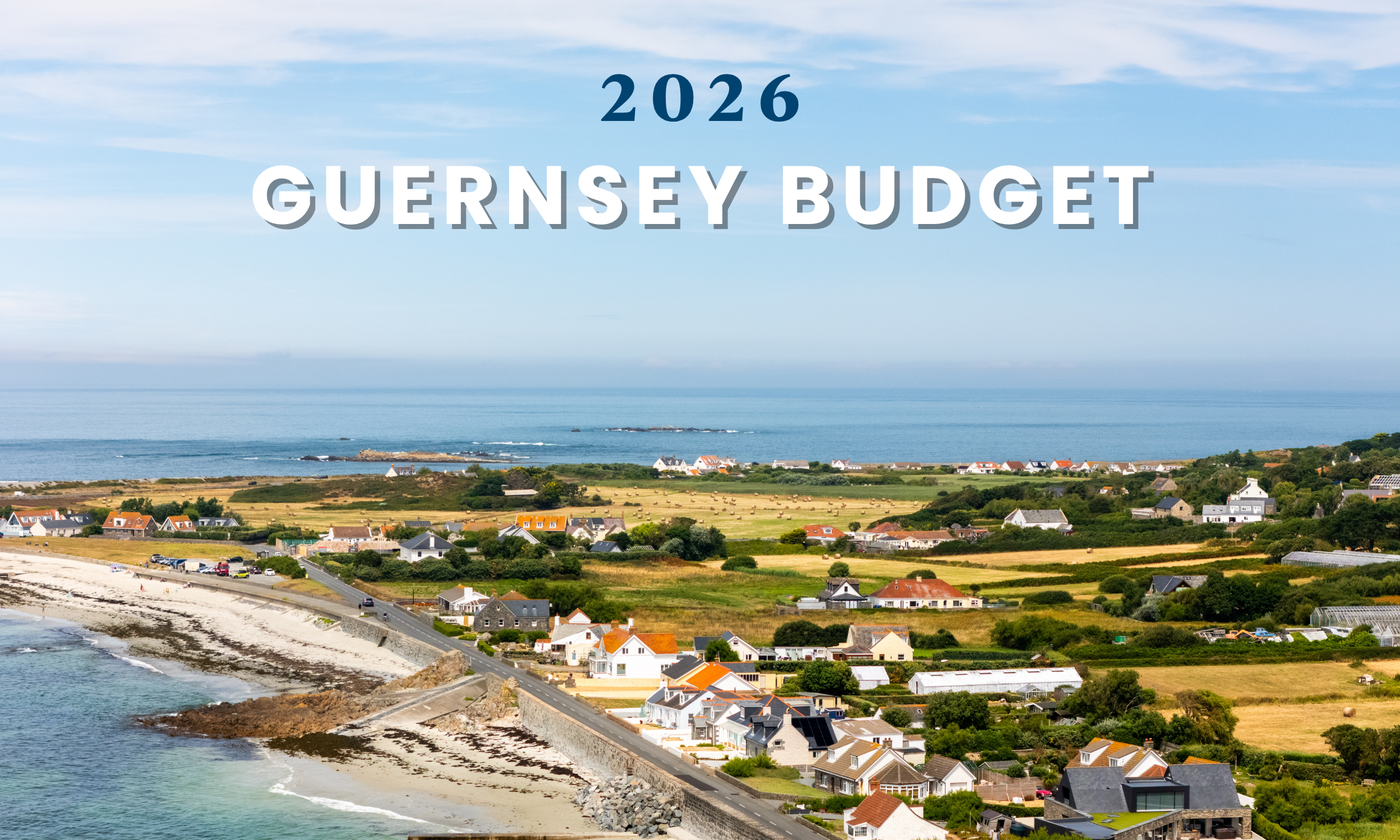
Budget 2026 – Navigating Fiscal Uncertainty Ahead of Reform
The 2026 Budget confirms that Guernsey is in a holding pattern, awaiting the outcome of corporate tax reform. Framed as a one-year financial plan, it reflects a short-term approach to fiscal management, with limited revenue-raising measures that generate only modest returns relative to the scale of the deficit.
Macroeconomic Landscape
Guernsey’s economy is navigating a period of cautious optimism amid global uncertainty. Inflation is easing, with RPIX forecast to average 3.3%, and modest real economic growth is anticipated. However, structural challenges persist, including:
- An ageing population
- Rising healthcare and social care costs
- Constrained housing supply
The island remains exposed to international developments, particularly in corporate taxation and interest rate movements, which influence both public revenues and private sector performance.
Tax: Budget Proposals and Impact
To bridge the period until corporate tax reform is implemented, the 2026 Budget introduces a series of targeted tax measures aimed at balancing fiscal sustainability with fairness:
- Personal Income Tax Allowance increased by £600 to £15,200, protecting pensioners and low-income earners.
- Mortgage Interest Relief continues its phased withdrawal, reducing the cap to £2,500, with full removal by 2029.
- Standard Charge for “resident only” individuals rises to £50,000, maintaining its real value.
- Document Duty: The additional 2% surcharge on non-primary residences is removed to ease pressure on the rental market.
- Excise Duties: Above-inflation increases on tobacco (13.3%), fuel (4.3%), and Vehicle First Registration Duty (8.3%). A new vaping liquid duty of £2.20 per 10ml is introduced.
- TRP (Tax on Real Property): Domestic rates rise by 8.3%, commercial by 5%, and parking land by 35%.
- Non-Commercial Shareholder Loans: Repayments of non-commercial loans from companies to shareholders will now be treated as taxable dividends where the company pays less than 20% tax.
- Excess Repairs Allowance (ERA): Landlords may now claim actual repair and maintenance costs incurred in the year, rather than averaging over five years. This encourages timely property upkeep and simplifies the claims process.
Tax Reform: Proposals and Outlook
Guernsey continues to prepare for broader tax reform in 2027. The GST+ package, approved in principle, includes:
- A 5% Goods and Services Tax (GST)
- A new 15% income tax band for lower earners
- Restructuring of social security contributions
A Tax Review Sub-Committee is exploring alternatives, including territorial corporate tax models. Final decisions are expected in mid-2026, with implementation planned for 2027.
Financial Position Post-Budget
Despite a forecasted £19 million revenue surplus, Guernsey faces a £48 million operating deficit before investment returns, and a £24 million net deficit after accounting for investments. The structural deficit is estimated at £77 million, highlighting long-term imbalances between recurring income and expenditure.
Key fiscal pressures include:
- Rising demand and costs in healthcare and social care
- Increased pressure on housing and public services
- Volatile corporate tax receipts and reliance on investment returns
The Budget includes a £4 million savings target, with £2.5 million embedded in departmental budgets.
Long-term fiscal sustainability will depend on the successful implementation of tax reform and continued discipline in public spending.

